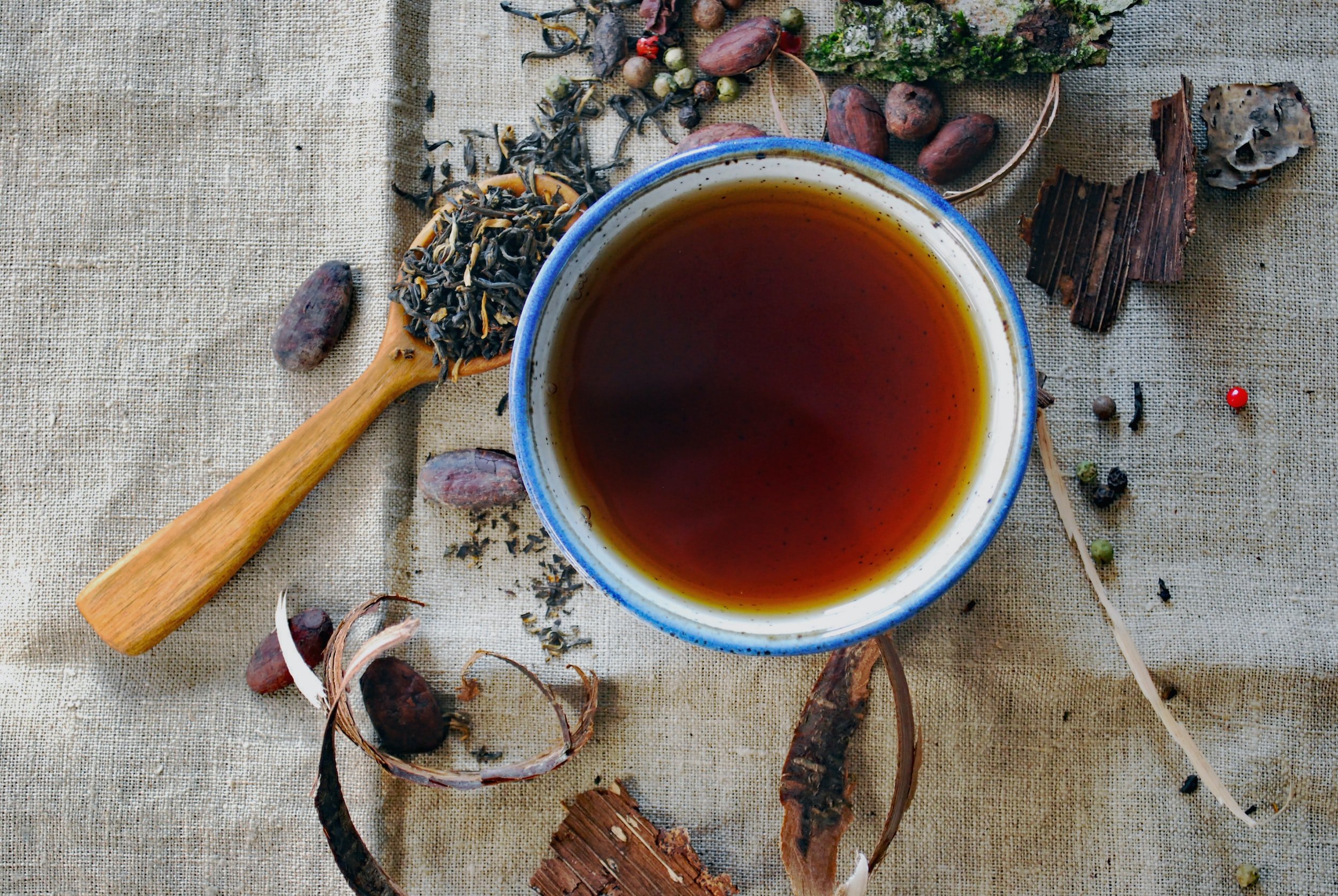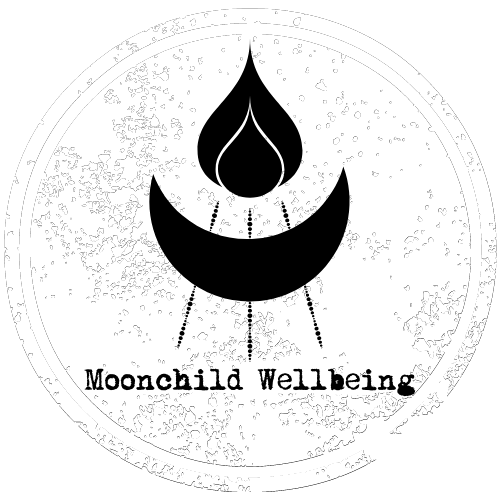Herbal Sleep Support

Good sleep is vital to good health.
During sleep the body is busy with the incredibly important tasks of repairing, rebuilding, and keeping your tissues, organs, and hormones functioning optimally. According to Sleep Foundation a lack of adequate sleep can lead to “obesity, type 2 diabetes, high blood pressure, heart disease, stroke, poor mental health, and early death” (https://www.sleepfoundation.org).
Despite sleep being so crucial to our health and sanity, many people struggle with falling asleep, staying asleep, and getting quality restorative sleep. If you’re struggling to get your zzzzz’s don’t lose hope, there are actionable steps you can take to find relief.
Identifying the Problem
First and foremost, speak to your healthcare provider to discuss your concerns and rule out any underlying medical causes like sleep apnea, snoring, restless leg syndrome, asthma, narcolepsy, chronic pain, etc. Research any prescriptions you’re taking to determine if insomnia, wakefulness, or nightmares are side effects and, if necessary, discuss possible prescription changes with your doctor.
Second, look to lifestyle factors that could be disrupting your sleep and make adjustments where you can. Here are some questions I explore with my clients to get you thinking about lifestyle factors:
Do you have a regular life schedule? Do you generally eat, sleep, wake at the same times? Does your schedule vary wildly day to day?
Do you work a nightshift?
How much sugar and/or caffeine do you consume daily? What times?
How close to your ideal bedtime are you eating meals or drinking alcohol?
How much screen time or exposure to blue light do you have before your ideal bedtime?
Do you get daily exercise? What times?
Is your environment conducive to good sleep? Is it dark enough, quiet enough, have the background sound you need? Is it cool enough?
Do you have a partner or roommates that disrupt your sleep? Do you have children or pets that disrupt your sleep?
Do you have a wind down routine? Do you meditate, pray, journal, etc before bed?
Do you experience circular thinking (hamster wheel brain) or anxiety at bedtime or nightmares throughout the night?
Are you waking throughout the night? What times? Is this a repeating pattern? Can you fall back to sleep?
What can you do differently right now to set yourself up for success tonight?
Can you unload any current stresses from your plate? Is there anyone you can turn to for help?
What have you already tried to fix this issue? What has worked? What hasn’t worked?
Next, it’s important to think about what your ideal sleep situation would look like. When somethings going wrong in our lives it’s easy to focus on getting the wrong thing to stop, and it makes sense why we do this. But it’s worthwhile spending some time thinking about and visualizing what the solution looks like. Here are some questions to get you started:
What does my ideal bedtime routine look like? What does it feel like?
What time would I ideally get into bed, fall asleep, and wake up?
How do I want to feel when I wake in the morning?
How inspired do I feel to make changes toward this ideal situation?
Do I need help or accountability making these changes?

Herbal Support
Once medical and lifestyle factors have been addressed, herbs can be a supportive addition to your sleep routine. It’s important to acknowledge that herbs aren’t a one-stop shop. Working with an herbalist to identify your personal constitution and the root cause of your sleep troubles will allow you to choose the herb or herbs best suited for you.
Taking your herbs : Tea vs Glycerite (or tincture)
A good question to ask yourself when deciding between a tea or a glycerite/tincture is: do I usually wake up to pee throughout the night? If the answer is yes, I’d recommend trying a glycerite or tincture instead.
For a sleep tea, brew a strong cup or 2 and drink it in the two hours leading up to bed. Use 2 teabags or 2TBS loose herb per 8-12oz water.
For a sleep glycerite or tincture, take the first dose 2 hours before bedtime, then 1/2 dose every 30 minutes for the next 2 hours leading up to bedtime, if necessary. If you wake during the night, take 1/2 dose.
The Herbs
Chamomile (Matricaria recutita)is a mild sedative and relaxing nervine that’s safe and appropriate for any age. It has the ability to unwind physical and mental tension, cool internal heat, release the anxious grip in your solar plexus and guts, and relieve crankiness. Turn to small doses of chamomile for infant colic, teething, fussiness, and tantrums stemming from overtiredness. Chamomile is the exhale we all need. Not recommended for people with allergies to plants in the Asteraceae family.
Passionflower (Passiflora incarnata) is a cooling relaxing nervine that calms a restless mind, eases muscle tension and spasms, and quells agitation and aggravation. Passionflower works directly on the central nervous system, gently lulling the system toward relaxation and sleep without the morning fogginess other sleep aids may produce. It quiets mental chatter and circular thinking, eases anxiety and palpitations, and cools excess heat created by stress and inflammation.
Skullcap (Scuttelaria lateriflora) is a cooling relaxing nervine that’s great for high-strung, type A, overly critical folks who haven’t yet mastered the art of chilling out. Skullcap calms brain function which slows and quiets circular thinking, allowing the thinker to loosen the grip on their thoughts. It relieves muscle tension and nerve pain which can soften the grip in the jaw, shoulders, and forehead. Skullcap can be used throughout the day for anxiety and overstimulation then combined with sedating herbs to promote restful sleep.
Lavender (Lavandula officinalis) is a warming relaxing nervine well known for reducing anxiety and promoting peacefulness. It loosens the mental grip of stress and anxiety while lessening tension pain in the body. Lavender’s aromatic properties make it a soothing addition to a bath or eye pillow, or sprinkle some drops of the essential oil onto your pillow or pajamas.
Hops (Humulus lupulus)is a cooling relaxing nervine and powerful sleep aid that’s well suited for people who lie awake at night endlessly planning their to-do lists while feeling crushed under the weight of the stress of their to-do lists. Hops calms the mind, cools excess heat, grounds the body in the present moment, and ushers the system into sound sleep. If overthinking has caused the stomach to twist into hot irritated knots, hops can offer much needed relief. Not recommended with clinical depression, estrogen dominance, during pregnancy, or with allergies to hops.
California Poppy (Eschscholzia californica) is a cooling relaxing sedative herb that reduces nervous tension and anxiety and lessens the experience of pain. When anxious constriction has become pain that’s interfering with sleep, California poppy helps to downshift the nervous system to reduce the anxiety and loosen it’s grip. This leads to less pain in the body, a calmer mind, and an easier time falling asleep. Not recommended during pregnancy or with prescriptions such as MAOIs, SSRIs, and sleep aids.
Ashwagandha (Withania somnifera) is a warming restorative adaptogen, nervine, and adrenal tonic with a multitude of benefits. Used long-term ashwagandha restores and nurtures a system that’s been depleted, frazzled, and fried by stress. It’s useful for people who are “tired and wired”- when stress and chronic fatigue drive you to the brink of exhaustion yet you don’t even have the energy to fall asleep. If you’re looking for a soothing nightcap a blend of ashwagandha powder, cardamom, and cinnamon heated in coconut milk is incredible. Caution should be taken for people sensitive to nightshades.
Need more support?
You don’t have to solve it all by yourself!
Click here to schedule your Initial Clinical Consultation. We’ll identify the underlying causes of your sleep troubles and pair you with the right herbs to get you those sweet sweet zzzzz’s.
Check out the Shop for our Good Night Moon products. Good Night Moon comes in a loose-leaf tea blend and an alcohol-free glycerite. It’s a wonderful blend of relaxing nervines to lull your mind and body into deep restful sleep.
